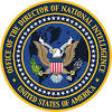ODNI releases joint statement before House judiciary committee
 On March 15, the Office of the Director of National Intelligence released a joint unclassified statement of Bradley Brooker, Acting General Counsel, Office of the Director of National Intelligence; Stuart Evans, Deputy Assistant Attorney General for Intelligence, National Security Division, Department of Justice; Grant Mendenhall, Acting Assistant Director for Counterterrorism, National Security Branch, Federal Bureau of Investigation; Paul Morris, Deputy General Counsel for Operations, National Security Agency; and Stephen Vanech, Deputy Chief, Office of Counterterrorism, National Security Agency before the House judiciary committee at a March 1 hearing entitled “Section 702 of the FISA Amendments Act.” An excerpt of the statement appears below.
On March 15, the Office of the Director of National Intelligence released a joint unclassified statement of Bradley Brooker, Acting General Counsel, Office of the Director of National Intelligence; Stuart Evans, Deputy Assistant Attorney General for Intelligence, National Security Division, Department of Justice; Grant Mendenhall, Acting Assistant Director for Counterterrorism, National Security Branch, Federal Bureau of Investigation; Paul Morris, Deputy General Counsel for Operations, National Security Agency; and Stephen Vanech, Deputy Chief, Office of Counterterrorism, National Security Agency before the House judiciary committee at a March 1 hearing entitled “Section 702 of the FISA Amendments Act.” An excerpt of the statement appears below.
The FAA provides authorities the Intelligence Community uses to collect information about international terrorists and other foreign intelligence targets located outside the United States. It has proved to be a critical legal authority to protect our national security. The FAA, in particular Section 702 authority, has also been the subject of extensive oversight and review by all three branches of Government, as well as a comprehensive review conducted in 2014 by the independent Privacy and Civil Liberties Oversight Board (“PCLOB”) examining FAA’s Section 702 authority. These reviews have universally concluded that the Government is properly using this authority to conduct foreign intelligence collection; no review has identified a single intentional violation of the law.
We begin by discussing Section 702 of the Foreign Intelligence Surveillance Act (“FISA”), the provision that permits targeted surveillance for intelligence purposes of foreign persons located outside the United States with the assistance of U.S. electronic communication service providers. We summarize how Section 702 works, how the Intelligence Community has implemented it, the extensive oversight we conduct of its use, and our transparency efforts to better inform the American public of the scope and protections of this program. We also describe the results of several independent oversight reviews of the Government’s use of Section 702, as well as additional protections that have been added in the last several years. Additionally, we describe the importance of Section 702 to our national security, and give an example of its value in protecting against a variety of threats. A number of further specific examples of the substantial value generated by Section 702 collection will be provided in a classified context. Next, we briefly describe other changes to FISA made by the FAA, including sections 703 and 704, which provide increased protections for Americans’ civil liberties by requiring orders from the Foreign Intelligence Surveillance Court (“FISC”) before the Government may engage in certain kinds of intelligence collection targeting U.S. persons located outside the United States. Prior to the FAA, the Attorney General could authorize such collection without a court order; the FAA added additional protections for U.S. persons by requiring this collection to be authorized by the FISC. Finally, we describe our efforts to facilitate congressional oversight of the FAA.
This Committee plays an important role in overseeing these critical surveillance authorities. We are pleased to provide the Committee with the information it needs regarding the Government’s use of these authorities. After hearings and extensive review of the Government’s use of these surveillance powers, Congress reauthorized the FAA in 2012. We believe that the Committee will continue to agree that the Government has exercised these authorities in an appropriate manner that respects Americans’ privacy and civil liberties while also obtaining foreign intelligence information necessary to protect our national security.
Source: ODNI








